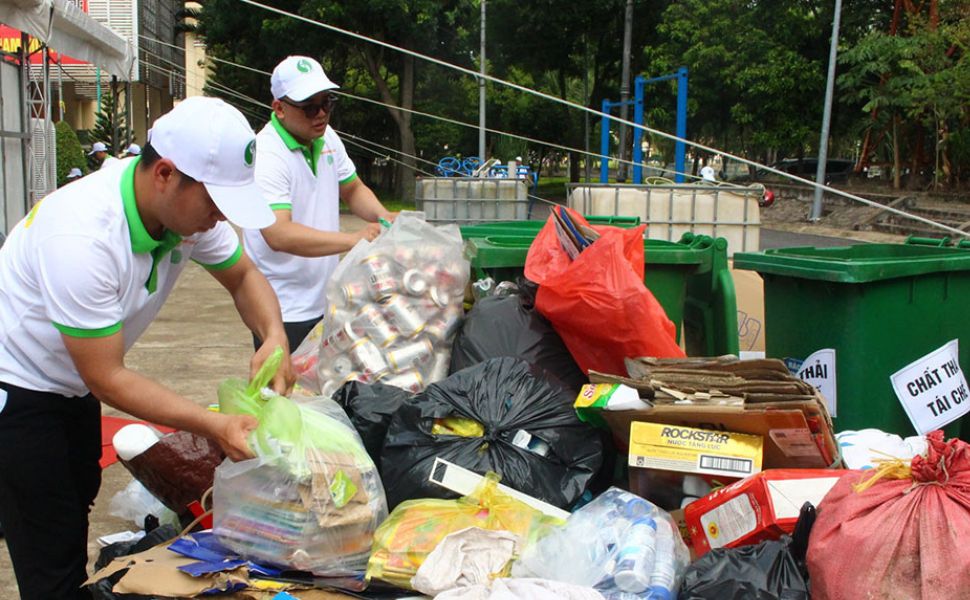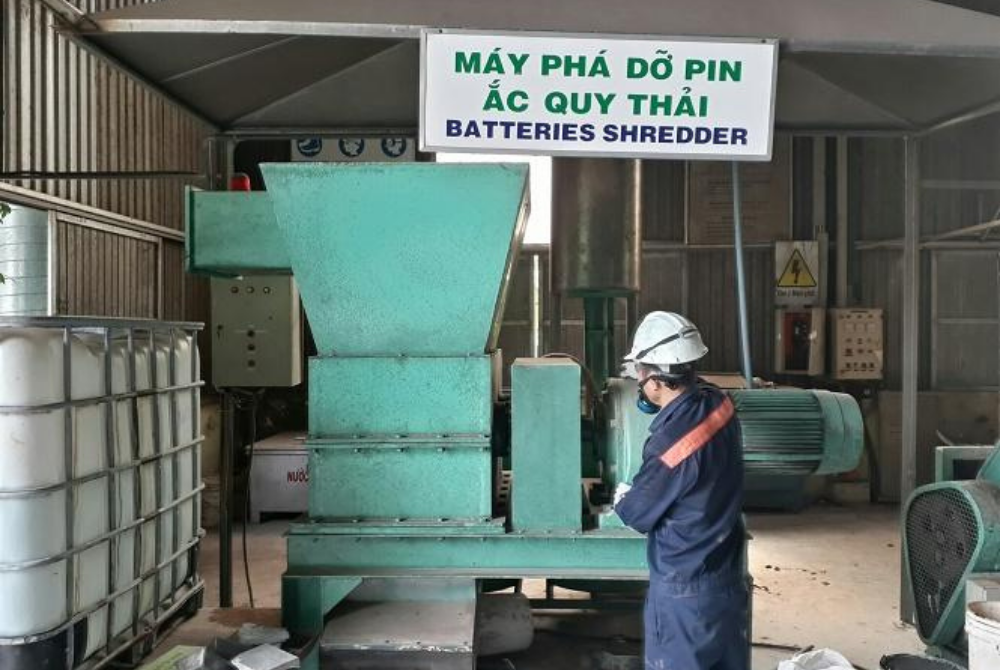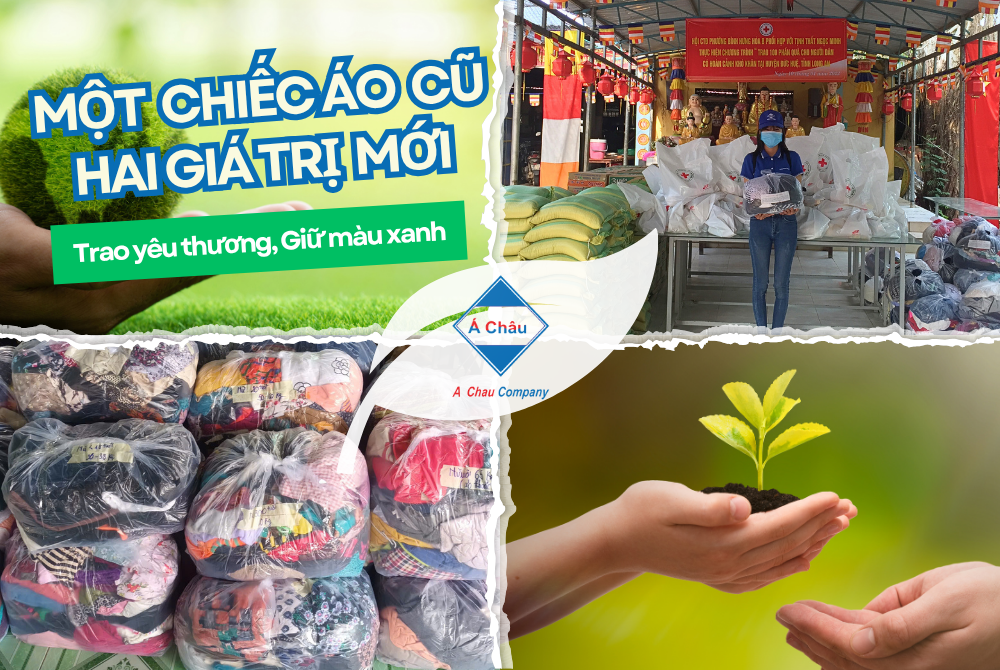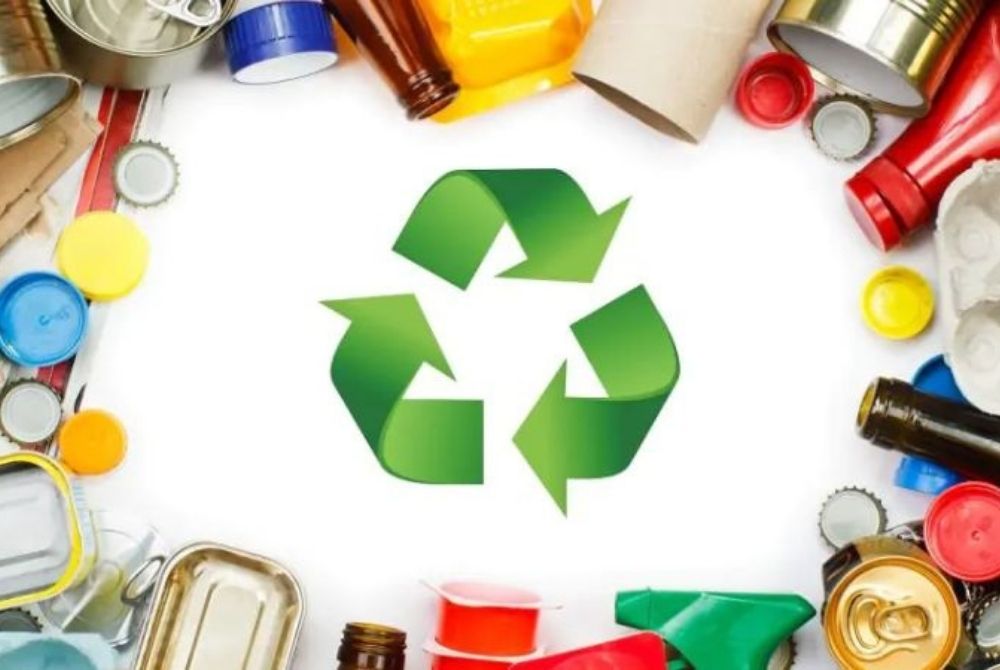Localities apply new regulations on Waste Management
Provinces adopted and implemented new waste management legislation simultaneously, which complied with the terms of the Law on Environmental Protection.
From February 15, 2024, domestic waste (MSW) in Dong Nai province must be segregated at source into 05 groups. That is the regulation in Decision No. 04/2024/QD-UBND regulating the management of domestic waste in the province, which was recently issued.
Paper (books, stories, notebooks, old newspapers, writing paper, boxes, cardboard, etc.), plastic (plastic chairs, basins, plastic pots, plastic cups, etc.), metal scrap (pots, pans, kettles, gas stoves, etc.), and rubber (rubber toys, tubes, tyres, etc.) are examples of recyclable solid waste.
Food waste group: Leftover and spoiled food; fruit and vegetable peels; Tea grounds, tissue paper, flowers, leaves, animal carcasses and other items with similar properties and ingredients.
Bulky waste group: Large-sized discarded household items such as cabinets, beds, mattresses, tables, chairs, stumps, trunks, branches and other similar items.
Groups of hazardous waste generated in daily activities: Batteries, accumulators, cleaning chemical containers, waste insect spray cans, fluorescent light bulbs, electronic light bulbs, electronic devices, expired pharmaceuticals, and electronic devices are no longer worth using.
Other MSW categories: These are waste kinds created in daily activities that homes, people, and organisations do not classify as waste types listed above. In urban areas, MSW can only be placed and packaged containing food waste and other domestic solid waste in a location suitable for collection by the unit receiving, transporting, and treating MSW from 7:00 p.m. to 10:00 p.m. on days specified by the Commune People's Committee. For rural regions, MSW collection times and locations must adhere to the commune-level People's Committee's MSW collection, transportation, and treatment plant.

Image
In 2024, the city of Hai Phong will implement new solid waste management legislation based on the philosophy of treating trash as a resource. Hai Phong City requires that residential garbage confined to the source after segregation be stored in separate packaging (bags) or storage equipment (bins), with signage designating the kind of waste. Or in line with the existing legal provisions.
Regarding domestic waste storage in public areas, parks, businesses, centralised services, markets, train stations, bus stations, docks, ports, ferry terminals, and places serving many people's daily needs must arrange domestic waste storage equipment with labels on the lid and body of the barrel in printed letters for three groups: reusable waste, recycling, food waste, and other domestic waste.
Encourage the insertion of fragile signs or graphics that indicate the sorts of household waste underneath the terms reusable and recyclable garbage, food waste, and other domestic waste to help people sort it into trash cans.
Domestic waste storage equipment must be adequate in size for the storage duration while also maintaining environmental cleanliness, urban aesthetics, and traffic order. The district People's Committee determines the location, position, and area for organising equipment to store residential garbage after segregation in public places, guaranteeing convenient collection and storage.
Individuals and organisations who amass and create garbage on their property must collect, transfer, and deodorise within 36 hours after receiving comments or requests from municipal authorities. If there is environmental contamination in the region, commune-level People's Committees must notify district-level People's Committees about it.
All construction solid waste is carried to the recycling, treatment, and reuse facility. Organic mud used for tree planting, broken bricks, concrete, wall panels, and levelling tiles are all examples of effective recycling. Waste that is not recycled or repurposed is buried and processed in environmentally safe areas. The city strongly supports the use of recycled, eco-friendly items.
After 2025, Hai Phong will not circulate or use plastic products or disposable plastic packaging that are difficult to biodegrade at shopping centres, supermarkets, hotels, or tourist areas...
Kien Giang province has also recently released a decree governing hazardous medical waste management, beginning February 20, 2024. Regulations apply to medical establishments, including medical examination and treatment establishments according to the provisions of the law on medical examination and treatment, preventive medicine establishments, health sector training establishments, medical and pharmaceutical research, testing, inspection, testing, and testing facilities that generate medical waste; and domestic and foreign agencies, organisations, and individuals with activities related to medical waste.
If hazardous medical waste is self-processed and energy is recovered at the facility using current technology and procedures, the hazardous medical waste source owner has the option of sorting or not sorting. Hazardous medical waste will be treated primarily at the plasma medical waste incinerator in Vinh Hoa Hiep commune, Chau Thanh district.
The paradigm of medical facility clusters clearly divides hazardous medical waste treatment into facilities. Kien Giang Provincial General Hospital, in particular, collects and treats hazardous medical and solid waste for all medical facilities in Rach Gia City, Chau Thanh District, An Bien, and the surrounding areas (excluding Tuberculosis and Lung Disease Hospital, Psychiatric Hospital, Nuclear Medicine and Radiotherapy Center).
Phu Quoc City Medical Center collects and treats hazardous solid waste for all medical facilities in the city (excluding Vinpearl Safari Phu Quoc Zoo and National General Hospital). Vinmec Phu Quoc International). In case the facility's hazardous medical waste treatment facility is not guaranteed or there is an incident that temporarily generates waste causing overload, the medical waste is transported to a centralised treatment facility under regulations.
Implement on-site hazardous medical waste treatment for nine medical facilities on the island, including Hon Tre, Lai Son, Nam Du, and An Son communes in Kien Hai district; Son Hai and Hon Nghe communes in Kien Luong district; Tien Hai commune in Ha Tien city; Tho Chau commune and An Thoi ward in Phu Quoc city. Facilities that self-treat hazardous medical waste must fulfil regulatory standards.
Source: MONRE












